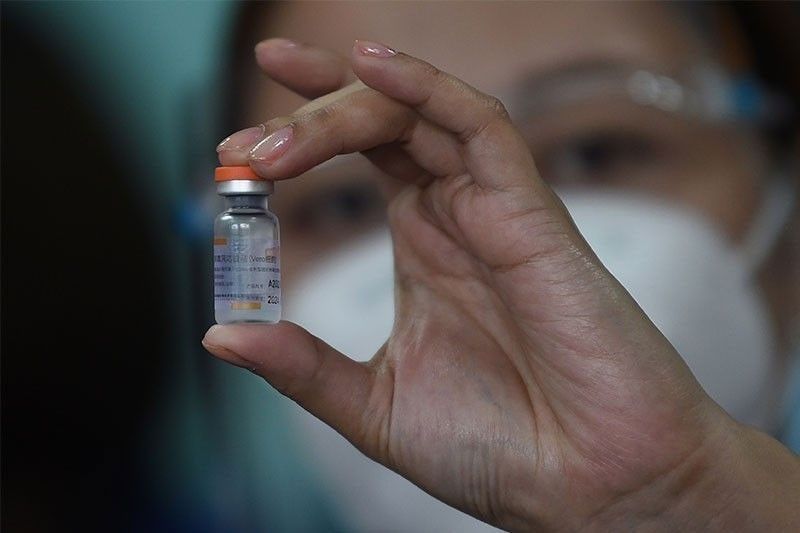13 million vaccine doses to arrive before midyear

MANILA, Philippines — The pace of the COVID-19 vaccine rollout in the country will pick up in the next two months as about 12 to 13 million doses of vaccines would arrive before the middle of the year, vaccine czar and Secretary Carlito Galvez Jr. told Congress yesterday.
His commitment before the joint hearing of the House committees on health and trade and industry is anchored on the scheduled arrival of big bulks of vaccines ordered both by the government and private sector.
The jabs scheduled to arrive are Sinovac, Gamaleya, AstraZeneca and Pfizer from the World Health Organization-led COVAX Facility as well as the country’s purchase of Sputnik V from Russia’s Gamaleya.
Galvez said the deliveries in the second quarter will ramp up inoculations to 120,000 doses per day in the National Capital Region (NCR) Plus bubble by June as long as there will be 3.3 million doses available each month.
He also revealed that the government may opt to buy the booster shots, which are expected to be available in the United States by fall, instead of the five million doses on top of the 20 million it already secured.
“We plan that instead of procuring the five million vaccine doses, we might buy the booster already,” he bared, explaining that Moderna’s booster can be used alongside any other coronavirus vaccine.
While Galvez admitted that vaccine rollout was off to a slow start, the Philippines is not exactly lagging behind its neighbors in Southeast Asia.
Based on the data he presented during the hearing, the country is fourth among the fastest in terms of vaccination speed among the 10 member-countries of the Association of Southeast Asian Nations (ASEAN).
To date, the Philippines has administered 1,562,563 doses to 1,353,107 individuals since the rollout started last March 1.
Leading in inoculations are Indonesia, Singapore and Myanmar.
Later yesterday, the Department of Health (DOH) released its Vaccination Statistics report, confirming Galvez’s figure and showing a total of 209,456 individuals in the country now fully vaccinated against COVID-19.
They are the ones who have received two doses of the vaccines.
With the country having received a total of 3,025,600 vaccines from Sinovac and AstraZeneca, the DOH said “current deployment is for Priority Groups A1, A2 and A3.”
A1 pertains to health care workers, A2 refers to senior citizens and A.3 are the people with comorbidities, all of whom are now being given CoronaVac or AstraZenecca vaccines.
DOH Undersecretary Maria Rosario Vergeire urged local government units (LGUs) to tap non-medical people to help step up inoculations by performing other necessary tasks.
“Let us utilize the non-health care workers more by designating them in the screening and counseling areas. This will leave the nurses, doctors, pharmacists, midwives to the actual immunization,” Vergeire said.
At present, there are 3,263 vaccination sites nationwide.
Galvez told lawmakers the government is partnering with Ayala, SM, Megaworld and Robinsons to set up mega vaccination sites in their malls.
Technology
Tapping digital technologies like the Vaccine Information Management System (VIMS) would ensure the efficient and speedier implementation of the national vaccination program, the Department of Information and Communications Technology (DICT) said.
Emmanuel Rey Caintic, ICT Undersecretary for digital Philippines, said the VIMS is an ICT tool being adopted in the effort to shorten the vaccination process in LGUs all over the country.
It will ensure the efficient rollout of the mass vaccination with the least wastage, finishing it at the shortest possible time and covering the widest number of the population, he said.
Without this technology, Caintic noted a long vaccination process that ranges from 20 to 25 minutes or even 30 to 40 minutes in different LGUs.
“That is not acceptable,” he said.
With the large shipment of COVID-19 vaccines due in the next weeks, the process from registration to screening, consent and actual vaccination should be down to five minutes, he said. – Rainier Allan Ronda, Delon Porcalla, Cecille Suerte Felipe
- Latest
- Trending
























